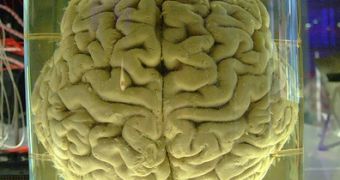Scientists have discovered that lactose, a byproduct of intense muscular activities, can be used to fuel the brain with energy. When glucose, the natural fuel of the brain, is no longer present in sufficient quantities, the cell tissue can “switch” to alternative energy, to prevent any damage to the brain on account of the lack of energy.
Under great deals of pressure and stress, the human muscles produce lactose, a compound that, once it accumulates, causes pain and difficulty of movement. This is also known as “muscular fever.”
However, researchers in Denmark and The Netherlands have discovered that the brain can subtract a certain amount of lactose from the muscles and bloodstream to use it for sustaining itself. They found that, under certain conditions, the blood flowing to the brain had much more lactose in it than blood coming from the brain, so the only logical conclusion they could reach was that lactose was somehow processed in the brain, thus, that it was being used as fuel.
Consequently, by consuming the lactose in the blood, the brain clears the way for glucose, the main powering substance in the body, to reach the muscles and provide them with energy for the hard work they are doing. This research is very important because it explains why the brain is able to operate even when the body demands unusually high amounts of energy and oxygen. In fact, our mind actually goes into a higher “gear,” in order to be able to cope with any situation. This opens up new areas of brain research, as scientists argue that understanding the role of lactose in the brain could help them find potential cures for common brain diseases.
From a historic point of view, this discovery explains why animals easily fell to predators, when the glucose in their brains ran out. The hunter just had to have had the ability to process lactose as a back-up fuel supply in order for it to be able to run and sustain heavy muscle activity for longer periods, LiveScience reports.

 14 DAY TRIAL //
14 DAY TRIAL //